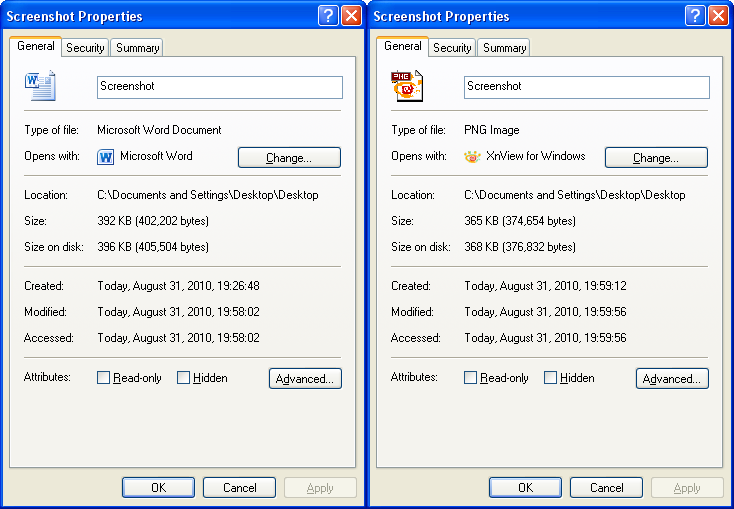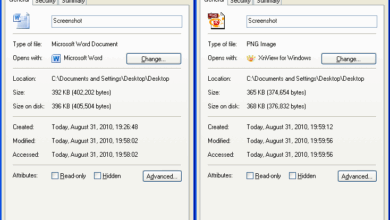How to compare hotel prices across different booking websites?
How to compare hotel prices across different booking websites? In the age of digital travel planning, ensuring you secure the best deal on accommodation has never been more crucial. With countless booking platforms at your fingertips, the need for smart price comparisons becomes apparent as it can significantly influence your travel budget and overall experience. By taking the time to compare prices across various sites, you open the door to discovering exceptional deals that might otherwise slip through the cracks.
Understanding the importance of this comparison process not only saves you money but also enhances your travel planning by enabling you to make informed choices. From recognizing price variations to utilizing effective tools for comparison, every detail plays a vital role in ensuring your hard-earned cash is well spent. This guide will illuminate the methods and strategies necessary for navigating the vast landscape of hotel booking websites.
Importance of Comparing Hotel Prices

Comparing hotel prices across different booking websites is crucial for savvy travelers looking to maximize their budgets. With the plethora of options available online, taking the time to analyze prices can significantly impact the overall travel experience, ensuring that you get the best value for your accommodation choices.Variations in hotel prices can be staggering, ranging from slight differences to substantial discrepancies that can affect travel budgets.
For instance, a hotel may list rates varying by as much as 30% on different platforms. This could mean the difference between a luxurious suite or a budget stay, directly influencing the quality of your trip. Therefore, understanding these price differences and how to navigate them is essential for every traveler.
Benefits of Price Comparison
Exploring the benefits of comparing hotel prices reveals several compelling reasons to engage in this practice. The following points highlight the advantages of utilizing multiple booking websites:
- Access to Competitive Rates: Different booking websites often have exclusive deals and discounts, which means you can access competitive rates that might not be available elsewhere.
- Identification of Hidden Fees: Some websites may include additional charges in their final pricing, while others may present lower initial rates. By comparing, you can uncover these hidden costs and make a more informed decision.
- Improved Negotiation Power: When you have knowledge of varying prices, you can leverage this information when negotiating with hotel staff directly, potentially securing an even better rate.
- Increased Chances of Finding Promotions: Seasonal promotions and last-minute deals may be available on certain platforms that you would miss if only checking one website.
- Access to User Reviews and Ratings: Many booking sites provide user-generated content that can help you evaluate the quality of hotels beyond just the price, allowing for a well-rounded decision-making process.
By embracing the practice of comparing hotel prices, travelers can ensure they are getting the most out of their budget, ultimately enhancing their travel experiences while minimizing unnecessary expenditures.
Methods for Comparing Hotel Prices

In the age of digital travel planning, comparing hotel prices has never been more accessible. With a myriad of tools and websites dedicated to this purpose, travelers can ensure they get the best deals available. Understanding how to effectively utilize these resources can significantly impact your travel budget and overall experience.Various tools and websites facilitate hotel price comparisons, each offering unique features that cater to different preferences.
Some well-known comparison platforms provide aggregated data from multiple booking sites, while others focus on specific regions or hotel types. Knowing which tools to use can streamline the process of finding the best rates.
Comparison Websites
There are several popular hotel comparison websites that allow users to find competitive rates effortlessly. These platforms aggregate data from various booking sites, providing a comprehensive view of available options. Notable websites include:
- Kayak: A user-friendly interface that compares prices from multiple sources, allowing for easy filtering of results based on preferences.
- Trivago: Known for its extensive database of hotels, Trivago displays prices across different booking platforms, making it easy to spot the best deals.
- HotelsCombined: This site consolidates results from various travel agencies and offers a simple method to compare prices and find the best offers.
- Expedia: While primarily a booking site, Expedia also features a comparison tool that allows users to view prices from other sites for the same hotel.
When using these comparison websites, follow these steps for an effective search:
1. Enter Your Destination and Dates
If you’re in a hurry and looking for accommodations, you might wonder where can I find the best last-minute hotel deals. Thankfully, there are many online platforms that offer significant discounts if you book at the last minute, allowing you to save money while still enjoying a great stay.
Specify your travel location and the dates of your stay to see relevant options.
2. Refine Your Search
When planning a wedding, one of the crucial steps is understanding how to successfully book a hotel room for a wedding. This ensures that you and your guests have a comfortable stay, making your special day even more memorable. Take the time to research options, compare prices, and read reviews to find the perfect venue that meets your needs.
Use filters to narrow down results based on price range, amenities, star ratings, and more. This helps to focus on hotels that meet your needs.
3. Review Hotel Details
Look into the specifics of each hotel listing, including location, guest reviews, and cancellation policies. Understanding these factors can help avoid surprises later.
4. Check Prices Across Platforms
Many comparison sites display prices from various booking platforms side by side. Ensure you check these options to find the best deal.
5. Click Through to Book
Once you’ve found the best price and hotel, follow the link to the booking site to finalize your reservation.
Manual Price Comparison
While comparison websites offer convenience, manually comparing prices across various booking platforms can yield even better results. Here’s a systematic approach to doing this effectively:Start by selecting a few key hotel booking platforms, such as Booking.com, Agoda, and Hotels.com. By having a focused list, you can streamline your search process.
- Visit Each Site: Open each platform in separate tabs to facilitate easy switching and comparison.
- Search for Your Hotel: Input the same destination and dates in each platform to maintain consistency across your searches.
- Record Prices: Create a simple table or note where you can jot down the prices for the same hotel across different sites. This method allows for quick visual comparison.
- Compare Policies: Note the cancellation and payment policies for each booking. Sometimes the cheapest price isn’t the best option when considering flexibility.
- Look for Special Deals: Some platforms may have exclusive offers or discounts that might not be visible on comparison sites.
By taking the time to manually compare prices, travelers can often uncover hidden savings and better options that automated tools might overlook.
“A little research goes a long way; investing time in comparing hotel prices can lead to significant savings.”
Factors Affecting Hotel Prices
Hotel prices are not static; they fluctuate based on various influencing factors. Understanding these factors is essential for travelers looking to secure the best possible deals. From travel dates to location-specific aspects, several elements interact to determine the final price of hotel accommodations. By analyzing these factors, guests can make informed decisions that align with both their budget and preferences.
Influences of Travel Dates on Hotel Pricing
Travel dates significantly impact hotel prices, often leading to price variations that can be substantial. Rates can soar during peak seasons, such as holidays and local events, as demand increases. Conversely, traveling during off-peak months generally leads to lower rates.
- Peak Seasons: High demand periods, like summer vacations or major holidays, result in higher prices.
- Weekday vs. Weekend Stays: Hotels may charge more for weekend stays compared to weekdays due to leisure travel spikes.
- Advance Booking: Securing reservations well in advance often yields discounts, as hotels aim to fill rooms early.
- Last-Minute Deals: Some hotels offer significant discounts for last-minute bookings to fill unsold rooms.
The interplay between demand and supply during specific periods is crucial; for instance, hotels in tourist-heavy locations may raise prices dramatically for events like music festivals, while those outside major cities might remain unchanged.
Impact of Location and Amenities on Hotel Prices
The geographical location of a hotel plays a pivotal role in determining its pricing structure. Properties situated in prime urban centers or near popular attractions typically command higher rates compared to those in less desirable areas.
- Proximity to Attractions: Hotels near landmarks or business districts generally charge a premium.
- Neighborhood Quality: Areas known for safety and vibrant nightlife can increase hotel prices.
- Amenities Offered: Hotels that provide additional services, such as pools, gyms, or complimentary breakfasts, often have higher rates.
- Room Type: Luxurious suites or rooms with ocean views attract higher prices than standard accommodations.
The combination of these location-specific factors can lead to notable differences in pricing, making it essential for travelers to consider both location and amenities when comparing hotel options.
Promotions and Discounts Affecting Pricing
Promotions and discounts serve as powerful tools in the hospitality industry, influencing hotel pricing significantly. Hotels frequently employ promotional strategies to attract guests and fill rooms.
- Seasonal Discounts: Many hotels offer special rates during slower seasons to encourage bookings.
- Membership Rates: Joining a hotel’s loyalty program can unlock exclusive discounts and perks.
- Package Deals: Bundling hotel stays with flights or activities can lead to overall savings.
- Flash Sales: Limited-time offers can provide substantial savings, prompting guests to book quickly.
These promotional strategies not only enhance value for travelers but also create competitive pricing dynamics within the hotel market, making it imperative for guests to remain vigilant for offers that suit their needs.
Tips for Securing the Best Hotel Rates: How To Compare Hotel Prices Across Different Booking Websites?

When it comes to booking a hotel, securing the best rates can significantly enhance your travel experience without straining your budget. With prices fluctuating based on various factors, employing effective strategies can lead to substantial savings. This section Artikels best practices and strategies for timing bookings to make the most of hotel price comparisons.
Best Practices for Achieving Lower Hotel Prices
Adopting specific strategies can help travelers find lower hotel prices. Here are some best practices to consider when searching for accommodations:
- Book in Advance: Reserving your hotel room several months before your travel date can often secure better rates, especially during peak seasons.
- Be Flexible with Your Dates: If possible, adjust your travel dates to take advantage of lower rates. Weekdays often offer cheaper rates compared to weekends.
- Use Price Alerts: Many booking websites and apps allow you to set price alerts for specific hotels or destinations, notifying you when prices drop.
- Check Multiple Sources: Always compare prices from several booking websites, as well as the hotel’s own booking platform, to ensure you are getting the best deal.
- Consider Package Deals: Some travel websites offer package deals that combine flights and hotels, which can lead to overall savings.
Timing Your Bookings for Lower Rates, How to compare hotel prices across different booking websites?
Understanding the optimal times to book can be crucial for securing the best rates. Certain strategies can help travelers take advantage of pricing trends:
- Look for Last-Minute Deals: If your travel dates are flexible, consider booking last-minute as hotels often slash prices to fill vacant rooms.
- Know Peak Booking Times: Avoid booking during high-demand periods, such as holidays or major events, when prices are typically inflated.
- Research Seasonality: Prices can vary greatly based on the season; for example, beachfront hotels may be significantly cheaper in the off-season.
Leveraging Loyalty Programs and Rewards
Many hotels offer loyalty programs that reward frequent guests with exclusive deals and discounts. Utilizing these programs can lead to substantial savings:
- Sign Up for Loyalty Programs: Join hotel loyalty programs to earn points for every stay, which can later be redeemed for free nights or upgrades.
- Take Advantage of Promotions: Keep an eye out for promotional offers that provide bonus points or discounts for members, particularly during off-peak seasons.
- Utilize Credit Card Partnerships: Some credit cards offer additional benefits when booking hotels, such as cash back or extra points, which can lead to further discounts.
Maximizing rewards from loyalty programs can not only enhance your travel experience but also lead to significant cost savings over time.









